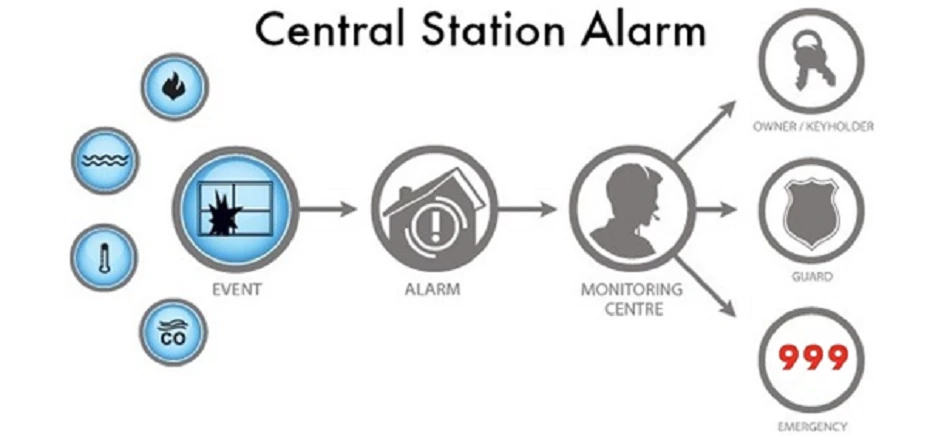
Partner Article
The Top FAQs on Home Security Cameras
When it comes to home security cameras, most of us will agree that they are a necessity nowadays. Protecting your home, business or other premises is essential, but before you decide on which security camera to buy it’s worth knowing the answers to the most common questions regarding home security cameras.
1. Do I need a home security camera?
This is probably the easiest question from this list and the answer is yes. There are a couple of reasons:
- Security cameras reduce the risk of theft
- They help you keep your premises safe
- They provide you with peace of mind
- They allow you to monitor your premises remotely
2. What is the cost?
The second important question people usually ask regarding wireless IP cameras is their cost. And the truth is, there is no single answer that can cover this question wholly. However, what you need to know is that the cost includes the price of the camera, and it may also include the payment for the labour necessary to install it. If you can do it yourself, it’s going to save you some money.
As for the price of the camera itself, they range from several pounds to a couple of thousand pounds based on your requirements. And it’s not always by a rule of thumb that more expensive cameras are better: you can purchase a pretty decent one for as little as £30.
If you’re about to have an alarm security system installed, get ready to pay a lot more. People report having to pay around £500 - 650.
3. Which is the best software for home security cameras?
There is a wide array of IP security cameras and systems you can opt for, all coming in different shapes, sizes, and prices. Some of the points to pay attention to are:
- Sleek design
- Price vs quality
- Working on both network cable and secure Wi-Fi for easier placement
- Picture quality
- Audio capabilities and voice quality
You can purchase security cameras that match these requirements for as little as £30.
4. What are the types of home security cameras?
While there are cameras in various shapes and sizes, qualities of image and sound, the easiest subdivision of home security cameras will divide them into indoor and outdoor cameras. If you want to see what’s going on around your premises opt for outdoor cameras.
If you want to monitor what happens at home while you are away, or you need to keep an eye on your kids or pets while you are away, indoor cameras are a better choice.
5. Where should a wireless IP camera be positioned?
If you have decided on buying a home security camera, you need to pick the best location to place it. In order to do so, you need to know something very important about the lens of the camera. It can be of two types:
- Fixed
This type of lens is ideal for monitoring a small area. It has no options of zoom in or zoom out, but is quite good at what it’s meant to do. Monitoring the entrance to your house, your kids’ bedroom or some other small area with these cameras is the best option, and a cheaper one.
- Varifocal
This type of lens is used to monitor larger areas and comes with zoom in and out functions. If you need to monitor the area surrounding your house or larger halls, opt for this kind of lens.
So, a fixed lens camera needs to be placed just above the area that needs to be monitored, while for the camera with varifocal lens the placement is more flexible.
6. Will wireless IP cameras reduce insurance costs?
One more important question is whether installing a home security camera will lower home insurance costs. Unfortunately, installing a camera alone won’t make any change on insurance costs. However, if you set up a system that will send an emergency alarm message to the respective authorities.
These are the most common questions that wireless IP camera buyers-to-be want to know the answers to. Make sure to perform your own small research and opt for a choice that’s going to give you some peace of mind without costing you a fortune.
This was posted in Bdaily's Members' News section by Mary .








 £100,000 milestone drives forward STEM work
£100,000 milestone drives forward STEM work
 Restoring confidence for the economic road ahead
Restoring confidence for the economic road ahead
 Ready to scale? Buy-and-build offers opportunity
Ready to scale? Buy-and-build offers opportunity
 When will our regional economy grow?
When will our regional economy grow?
 Creating a thriving North East construction sector
Creating a thriving North East construction sector
 Why investors are still backing the North East
Why investors are still backing the North East
 Time to stop risking Britain’s family businesses
Time to stop risking Britain’s family businesses
 A year of growth, collaboration and impact
A year of growth, collaboration and impact
 2000 reasons for North East business positivity
2000 reasons for North East business positivity
 How to make your growth strategy deliver in 2026
How to make your growth strategy deliver in 2026
 Powering a new wave of regional screen indies
Powering a new wave of regional screen indies
 A new year and a new outlook for property scene
A new year and a new outlook for property scene